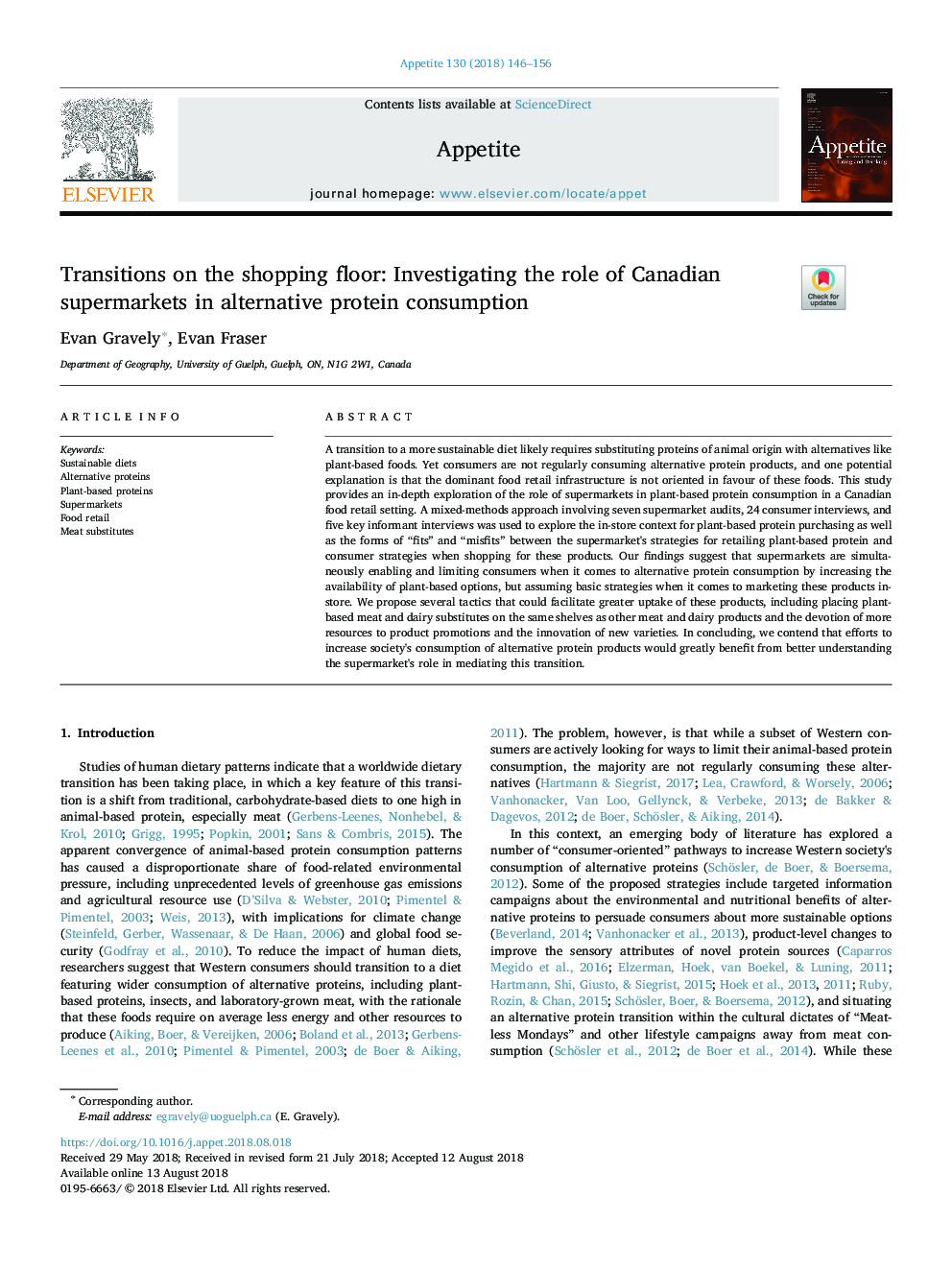| Article ID | Journal | Published Year | Pages | File Type |
|---|---|---|---|---|
| 7305047 | Appetite | 2018 | 11 Pages |
Abstract
A transition to a more sustainable diet likely requires substituting proteins of animal origin with alternatives like plant-based foods. Yet consumers are not regularly consuming alternative protein products, and one potential explanation is that the dominant food retail infrastructure is not oriented in favour of these foods. This study provides an in-depth exploration of the role of supermarkets in plant-based protein consumption in a Canadian food retail setting. A mixed-methods approach involving seven supermarket audits, 24 consumer interviews, and five key informant interviews was used to explore the in-store context for plant-based protein purchasing as well as the forms of “fits” and “misfits” between the supermarket's strategies for retailing plant-based protein and consumer strategies when shopping for these products. Our findings suggest that supermarkets are simultaneously enabling and limiting consumers when it comes to alternative protein consumption by increasing the availability of plant-based options, but assuming basic strategies when it comes to marketing these products in-store. We propose several tactics that could facilitate greater uptake of these products, including placing plant-based meat and dairy substitutes on the same shelves as other meat and dairy products and the devotion of more resources to product promotions and the innovation of new varieties. In concluding, we contend that efforts to increase society's consumption of alternative protein products would greatly benefit from better understanding the supermarket's role in mediating this transition.
Related Topics
Life Sciences
Agricultural and Biological Sciences
Food Science
Authors
Evan Gravely, Evan Fraser,
